THE CONCEPT OF EMAIL
THE
CONCEPT OF EMAIL
Some people ask so many
questions like what is this mail thing, is it important at all? How can I
create email accounts or address? These questions would soon be answered as we
go further into the topic.
The concept of email is the short
form for the term electronic mail. Email
simply refers to a means whereby people are able to send, receive and store
messages over an electronic medium. Email applies to electronic messages within
an organization as well as those that go across organizations. Most people
think that email came out of the internet but in actual fact, email existed
before the advent of the internet. Massachusetts Institute of Technology (MIT)
first introduced a variance of the present day email in 1961. Their
technologies allowed people from remote sites to dial into a computer and hence
were able to send messages to each other, once they had dialed in.
Today’s email system relies on
a complex interconnection of networks and resources that allow emails to be
delivered on time despite the seeming connection problems.
Some companies have their own
email systems that are not necessarily on the Web. An example is the government
of Ghana may create email systems tor their top officials and such email is not
available to the general public. But most people have their emails on the Web.
This type of web-based email system is always available on the internet and can
be accessed provided there can is an internet connection. Many of such
web-based email systems provide free of charge service making them very
popular. Some of these service providers include Yahoo, Google and Microsoft.
What is a Webmail?
Software run by an ISP or online service that provides access to send, receive, and review e-mail using only your Web browser. Users can simply enter the Webmail Web site URL in their browser's address or location field, and use their Webmail account by typing in a username and password. Webmail
provides an easy access and storage of e-mail messages for users who
are not connected to the Internet from their usual location. Instead of
the e-mail being downloaded to the computer you are checking your e-mail account from, the messages will stay on the provider's server, allowing you access to all e-mail messages regardless of what system or ISP you are connected to the Internet with. Hotmail, Gmail,
and Yahoo! mail are all examples of popular webmail providers.
Additionally many ISPs offer webmail services to customers in addition
to POP e-mail services.
Also called FlashMail.
The
importance of email
Emails are so much important
because;
· they
have enabled people to communicate much faster and effectively.
· Emails are used to scheduled appointments,
send out notice of meetings and get vital information. This is because emails
are fast and fairly reliable.
· Compared
to snail mail (the post office system), emails provide faster and reliable
medium of communication.
Creating
email accounts
Creating email account is very
easy and can be done in a matter of minutes. The choice of a service provider
does not really matter since most of their services are the same. But for our
purpose we’ll use the most common of these providers Yahoo and Gmail.
1.
Open the
browser and type the web address into the address bar and press Enter keys.
2.
When the site opens click the mail link
3.
Click on the ‘sign up for yahoo’
4.
Fill in the details for the first part of the
form (this requests for personal information). This information includes the
following.
Assignment 1:
Create a unique email account do the following
1. Provide the steps you followed to create your account
2. State two reasons why you choose your email service provider over
other providers
3. Send an email to the following email account by 12am the following
day.
Section
one
First
name:
this is your Christian name or actual name such as Prosper or Wonder
Last
name:
this is your surname
Gender:
select ‘’male or female”
Birthday:
select the month, day and year born.
I
live in: select your country (Ghana)
The
second part of the form is where you select the Yahoo! ID
you want and enter your own secret password. NOTE: Yahoo! ID is a person’s unique identifier.
This will be the beginning of
the email address. Choose a name you like and type it in the space
provided. The provided suggestions that
Yahoo! provides can also be chosen
Password
is
a secret code that is used to access emails. In choosing a password, one has to
choose a code that is difficult to guess but easy for owner to remember. It must be noted that using birthdays,
initials, family names and the like are not advisable.
Section three is where some
details that will help Yahoo! To recover email addresses when people forget
their passwords.
Alternate
email is entered if the user already has another email address.
Security
question: select from a number of options the question which is most
likely to remember the answer to. Click on the downward pointing arrow at the
end to see the questions
Your answer: provide an answer
to the selected question
The
last part of the ‘’ create Account Page ‘’ are security measures that Yahoo!
Takes to prevent automatic creation of accounts by viruses. Type
the code shown in the space provided. Check the box to agree to Yahoo’s terms
and conditions and click on the (create My Account) icon.
If all details are entered
correctly, Yahoo will create an account for you and you will get the
confirmation page.
Congratulations
you now have your own email address!
Click on the continue button to
take you to the home screen. From here you can always log into your Yahoo
account. Avoid forgetting your Yahoo! ID or password. In creating an account,
security of your ID and password are very important.
Trail
questions
1. What is
the use of email?
2. Explain
with two major points how emails have made communication very easy.
3. Explain
the term password as used during the creation of email accounts
4. What
factors should one consider when creating a secured password. What advice would
you give to computer users to avoid people easily guessing their passwords.
5. What is
the meaning of the term “username” as used during the creation of email accounts.
To create an account:
- Go to www.gmail.com.
- Click Create account.
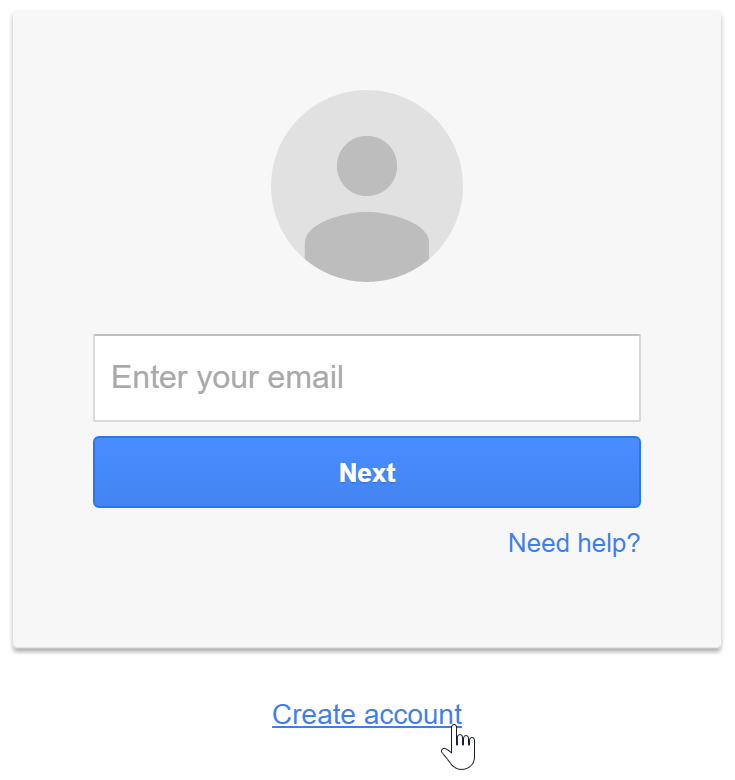
- The signup form will appear. Follow the directions and enter the required information.
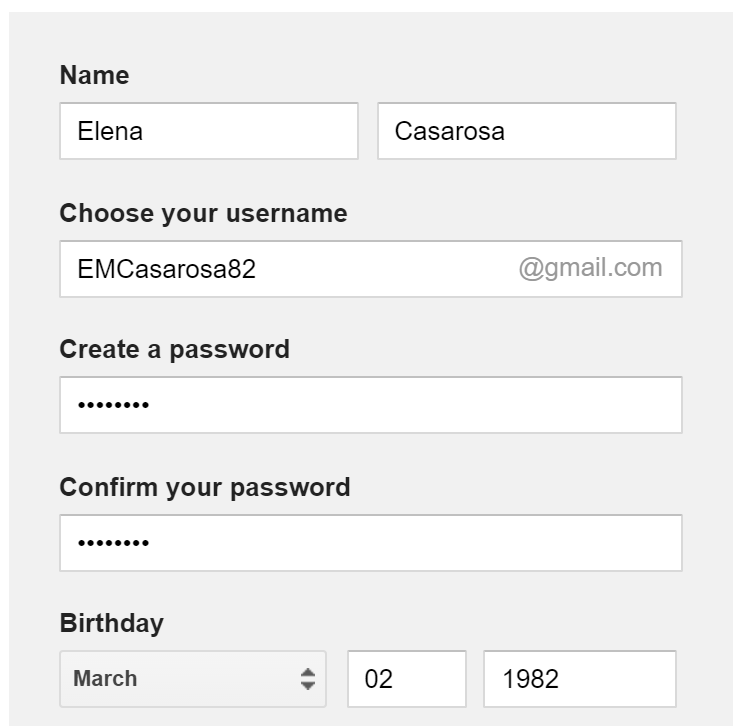
- Review Google's Terms of Service and Privacy Policy, click the check box, then click Next step.
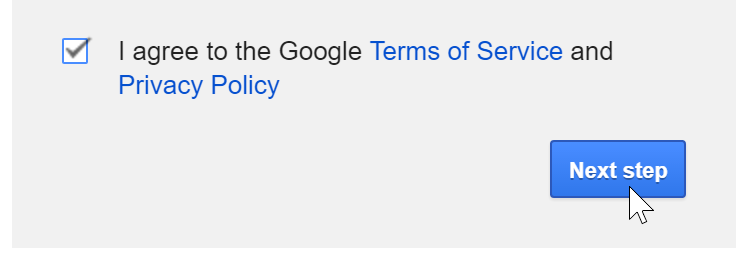
- Here, you'll have an opportunity to set up recovery options.
Recovery options are helpful if you forget your password or if someone
tries to access your account. If you don't want to set up recovery
options at this time, click Done.
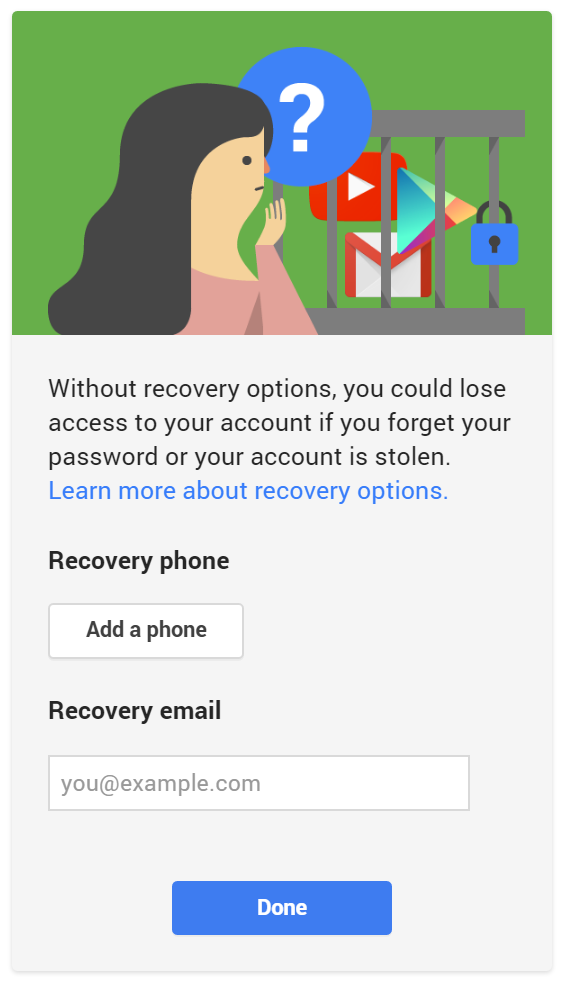
- Your account will be created, and the Google welcome page will appear.
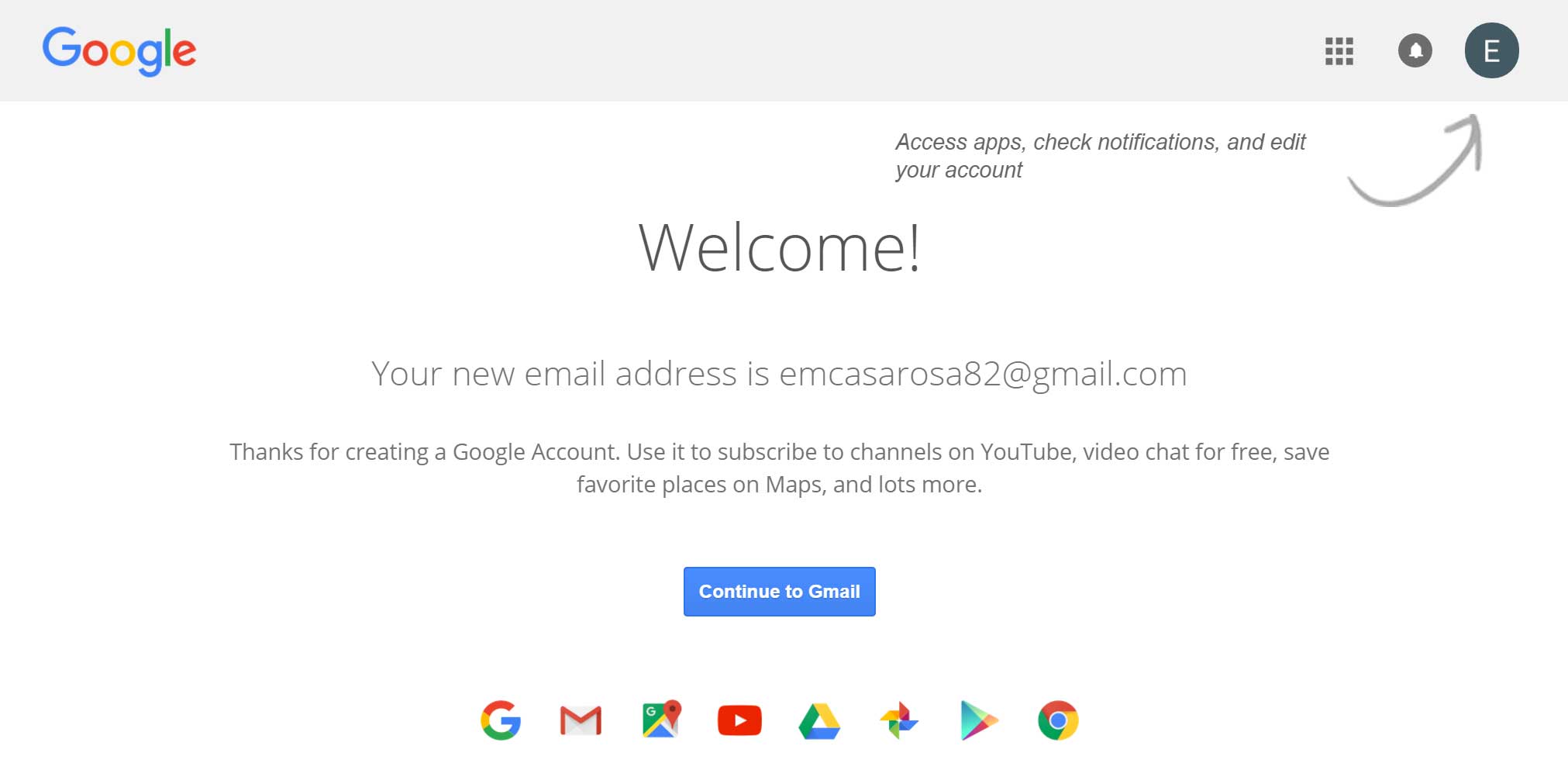
Just like with any online service, it's important to choose a strong password—in other words, one that is difficult for someone else to guess. For more information, check out our Creating Strong Passwords lesson.
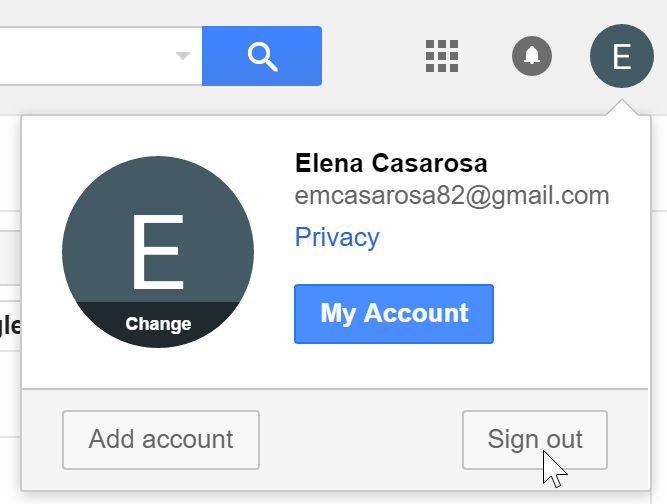
Signing in to your account
When you first create your account, you will be automatically signed in. Most of the time, however, you'll need to sign in to your account and sign out when you're done with it. Signing out is especially important if you're using a shared computer (for example, at a library or office) because it prevents others from viewing your emails.To sign in:
- Go to www.gmail.com.
- Type your user name (your email address) and password, then click Sign in.

To sign out:
In the top-right corner of the page, locate the circle that has your first initial (if you've already selected an avatar image, it will show the image instead). To sign out, click the circle and select Sign out.
Mail settings
Occasionally, you may want to make adjustments to Gmail's appearance or behavior. For example, you could create a signature or vacation reply, edit your labels, or change the theme. These adjustments can be made from your mail settings.To access your mail settings:
- Click the gear icon in the top-right corner of the page, then select Settings.
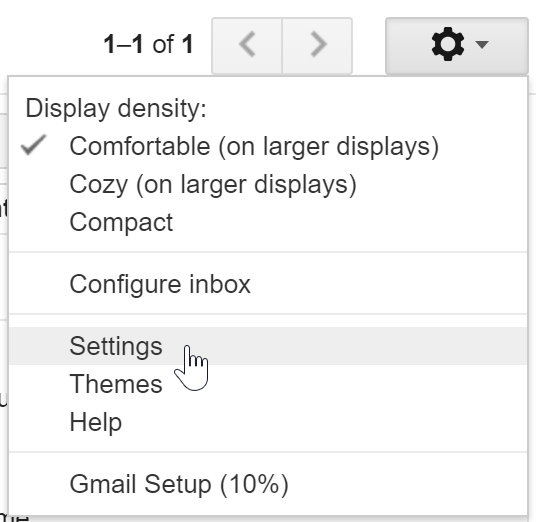
- From here, you can click any of the categories at the top to edit the desired settings.
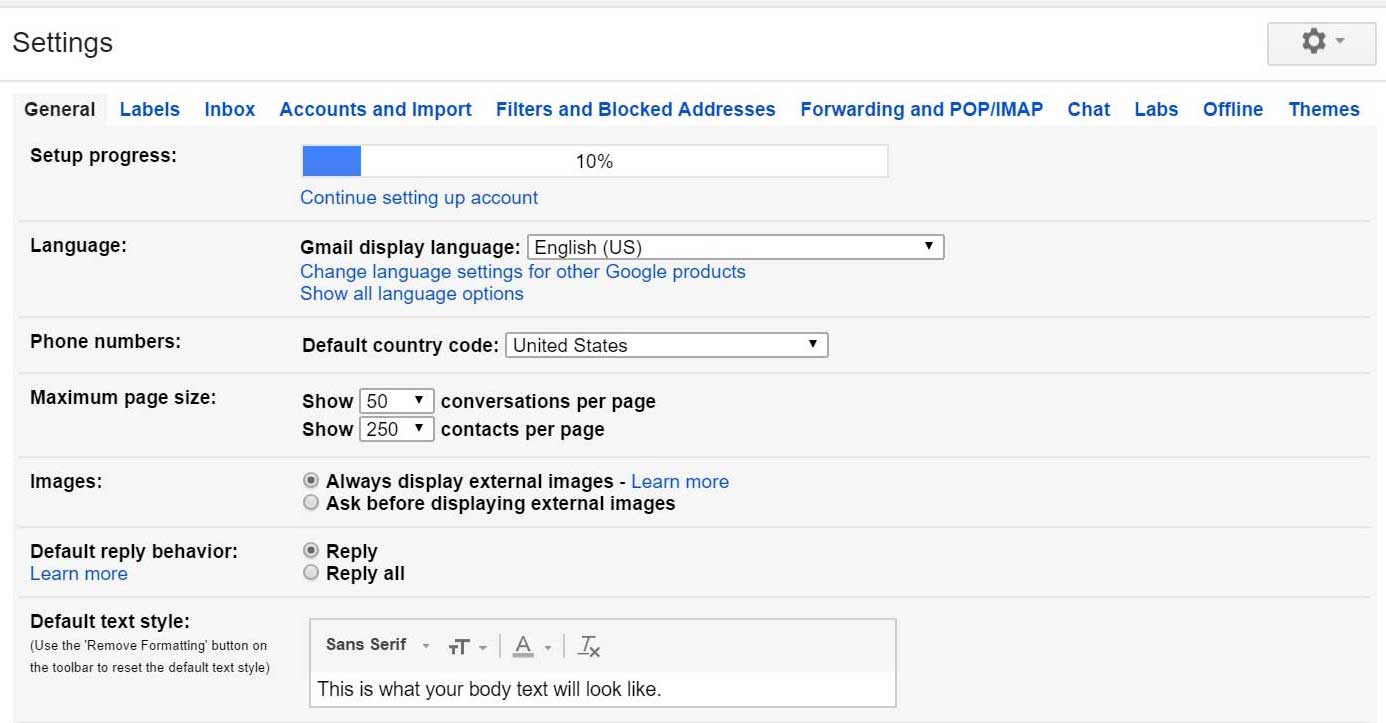
Adding contacts
Like all major email providers, Gmail lets you keep an address book of contacts so you don't have to memorize everyone's email addresses. You can also add other contact information, like phone numbers, birthdays, and physical addresses.To add a contact:
- In the Gmail drop-down menu, select Contacts.
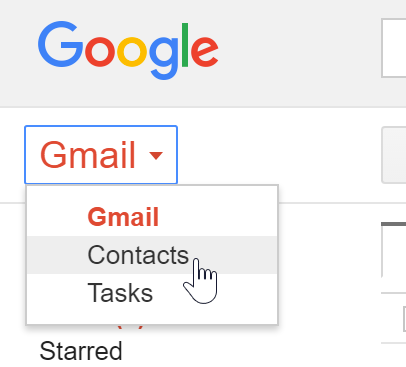
- Your contacts screen will appear. Click Add new contact.
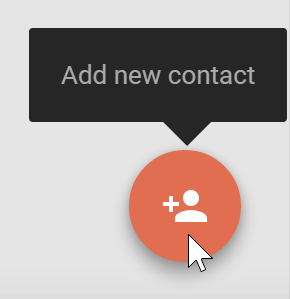
- Type the person's name or email address. If they have a Google+ profile, it may appear below. Click Create to add the contact.
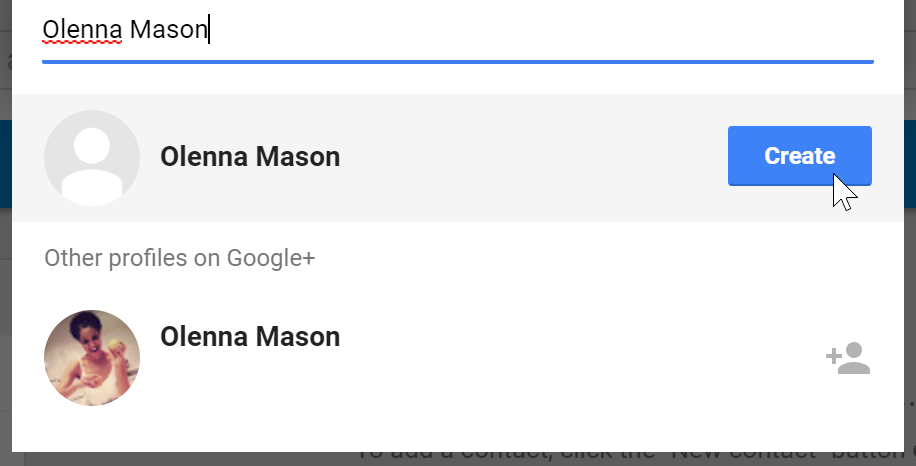
- You can also type additional contact information if desired. All changes you make will be saved automatically.
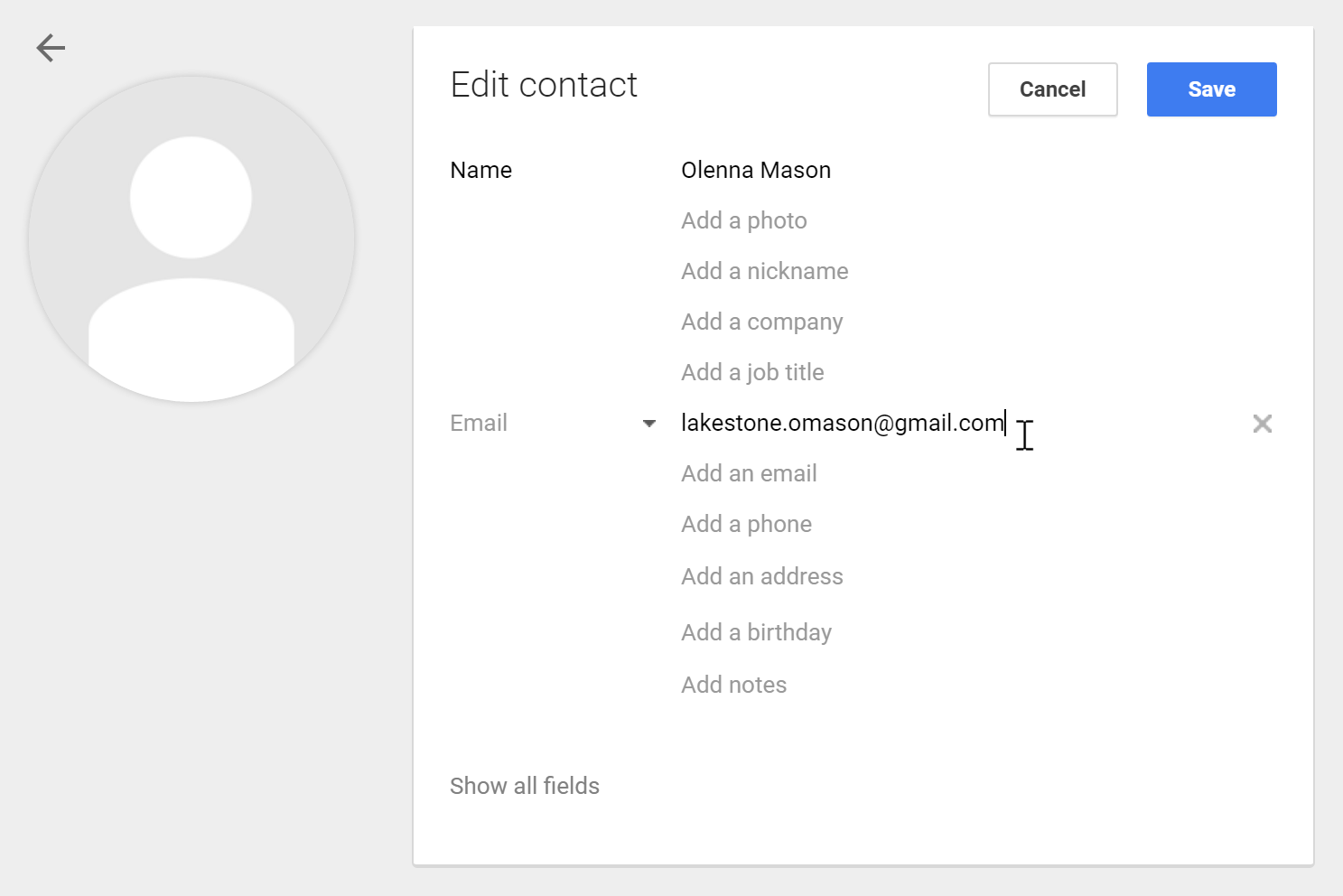
To edit a contact:
- In the Gmail drop-down menu, select Contacts.

- Click the contact you want to edit.

- You can now make any changes you want to the contact.
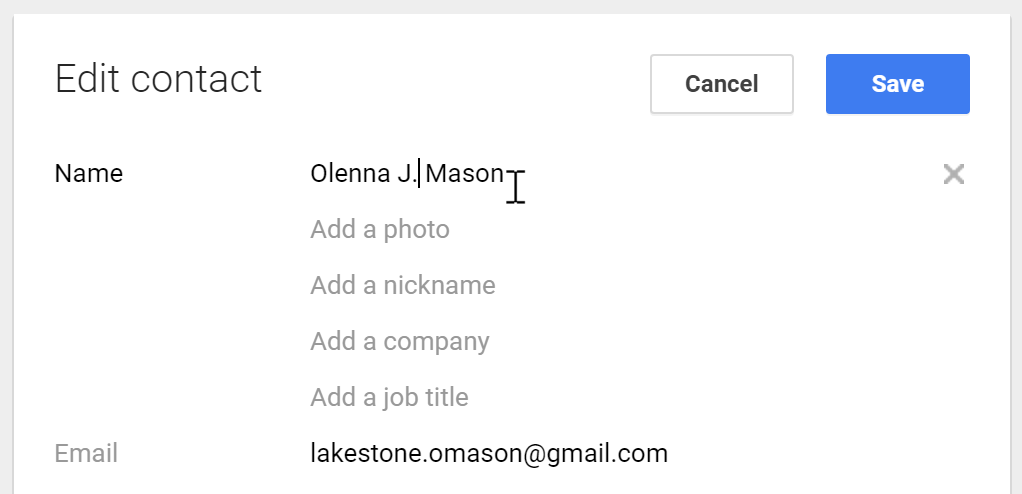
By
default, when you send an email to a new address, Gmail adds the
address to your contacts. You can then go to your contacts to edit the person's information as needed.
Importing mail and contacts
You may already have a contact list from another email address, and it would be a lot of work to re-enter all of this information manually. Gmail allows you to import your contacts from another email account, and you can even import all of your email messages from that account. Several email providers are supported, including Yahoo!, Hotmail, and AOL.To add other accounts:
- Click the gear icon in the top-right corner of the page, then select Settings.
- Go to Accounts and click Add a POP3 mail account you own. You can then follow the instructions on the screen to import your mail.
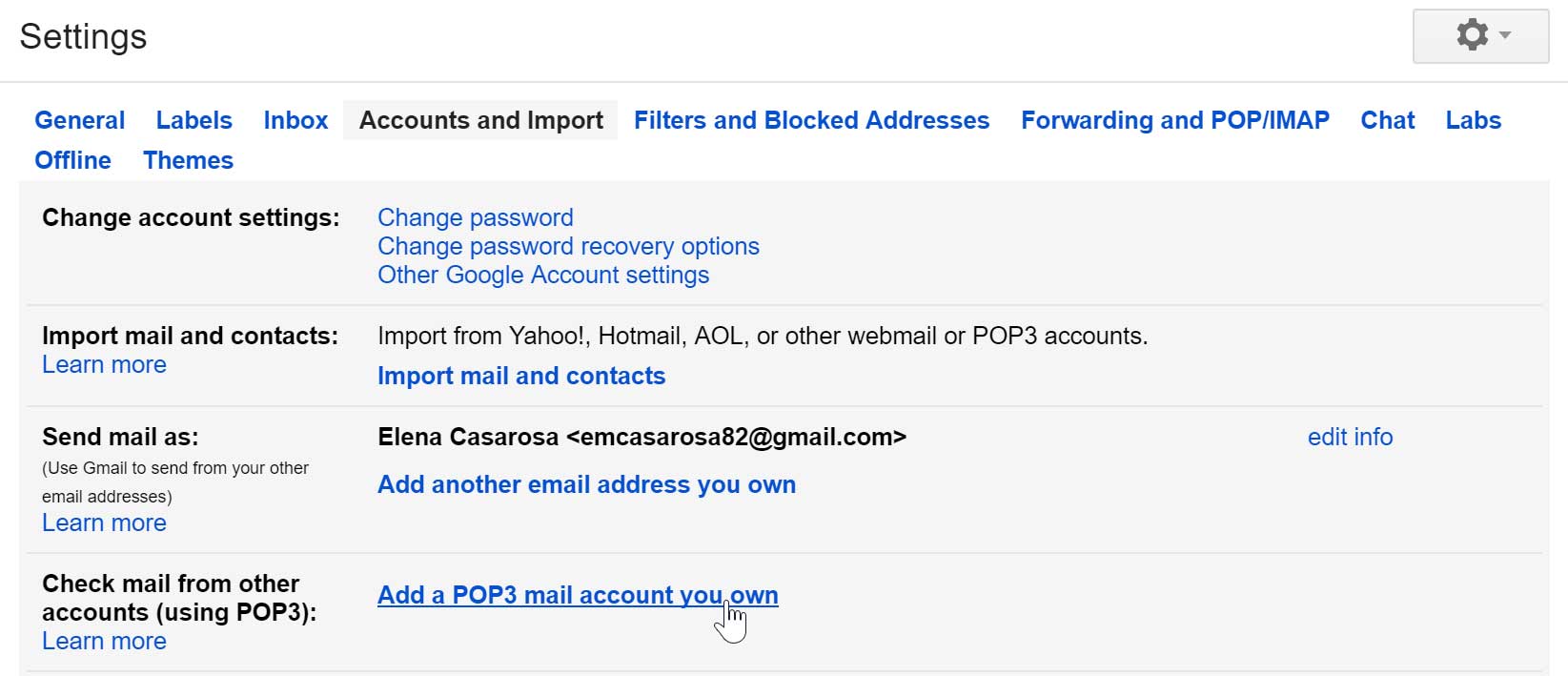
Challenge!
- If you do not already have a Gmail account, create one.
- Open Gmail.
- Navigate to your Gmail settings.
- Set your preferences in your Gmail settings.
- Add a new contact. You can either add one you already know, or if you'd like you can create one with the following information:
Name: Julia Fillory
Email: jfillory@gmail.com
Comments
Post a Comment